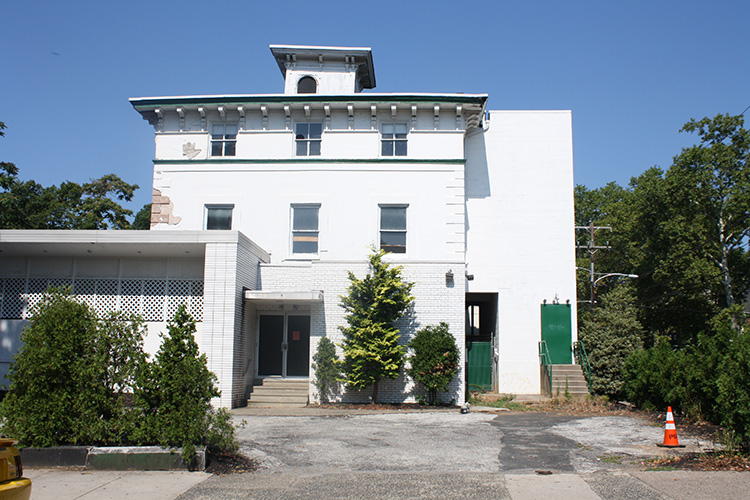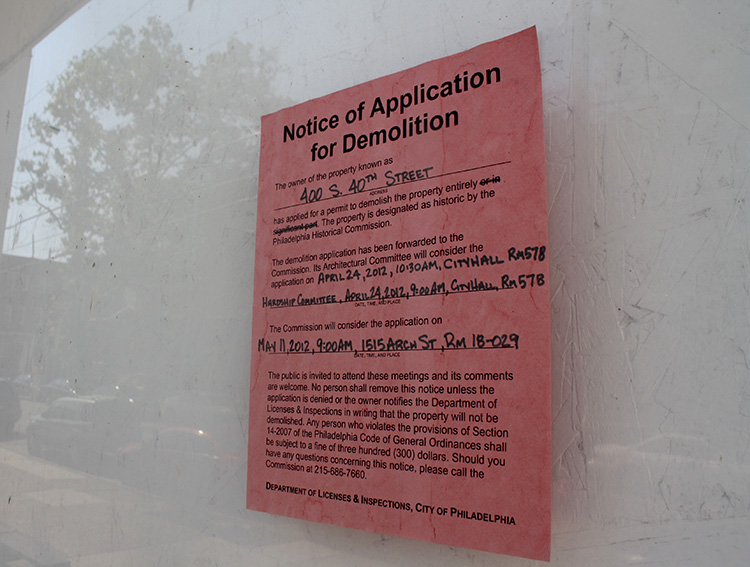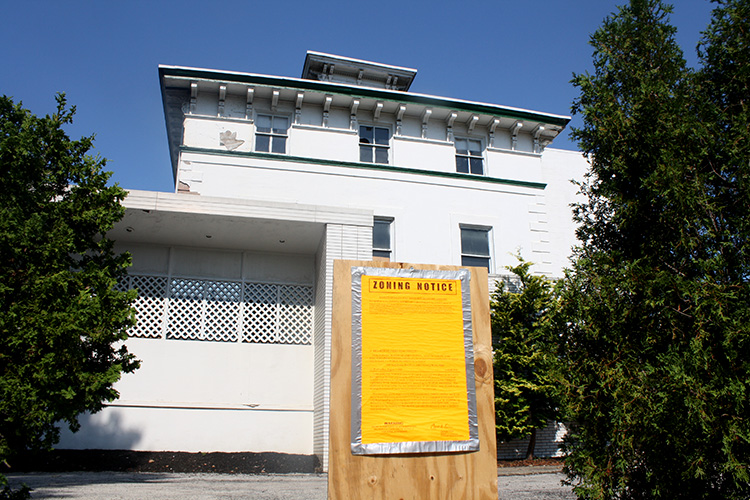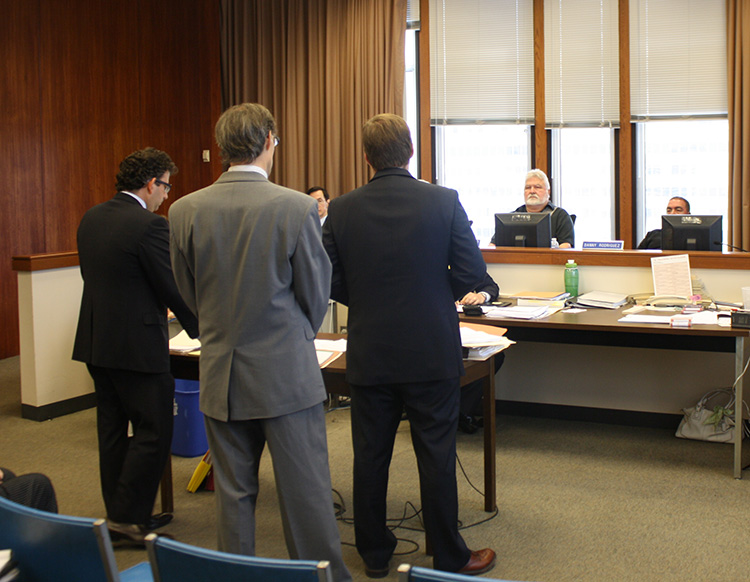L&I review board delays decision on demolition of historic mansion
The Board of License and Inspection Review cut short a hearing Tuesday afternoon of an appeal of the Historical Commission’s decision to approve the demolition of a historically designated Italianate mansion at the corner of 40th and Pine. After about an hour of testimony, Board chairman Anthony P. Rabutino called a five-minute break, and then announced he had to leave. The hearing will be continued at to-be-determined date.
Back in May, the Historical Commission granted the University of Pennsylvania a financial hardship decision by a vote of 7-2 with one abstention, allowing it to move forward with demolition of the mansion. Several neighbors, including some representatives of the Woodland Terrace Homeowners Association, appealed that decision. The appellants are represented by attorney Paul Boni.
Another neighborhood group that has opposed some of Penn’s proposals for the property, Spruce Hill Community Association, decided not to join the appeal.
Penn’s attorney Matthew McClure then filed a motion—in conjunction with the City’s Law Department—to dismiss the appeal based on the premise that the appellants don’t have legal standing relative to the subject property. Two of the appellants own—but do not occupy—houses directly adjacent to the property. The third is the Woodland Terrace Homeowners Association, which claims the property sits on its boundary.
The City’s Historic Preservation Ordinance states that, “Any person aggrieved by the issuance or denial of any permit reviewed by the [Historical] Commission may appeal such action to the Board of License and Inspection Review.”
The attorneys for Penn and the City argue that the appellants in this case are not legitimately aggrieved. Appellants Guy Laren and Maryann Kurmlavage own, respectively, 4001 and 4003 Baltimore Avenue, half a block down from the property in question. Both rent their properties out. Attorneys argued that the only detriment to these two appellants would stem from the construction of student-oriented housing at the corner—which would compete with the homeowners’ ability to rent—and not from the demolition of the historic structure. Working with student housing developer Jonathan Weiss of Equinox, Penn has proposed a five-story structure for the site. Earlier plans called for building a seven-story structure without demolishing the historic building; neighbors opposed the mass and scale of that proposal as well.
“The law is clear,” said McClure, an attorney with Ballard Spahr. “Economic competition is not enough.”
But Paul Boni argued that the potential harm to the appellants was more than a competitive harm. He said that the demolition of the historic mansion at 40th and Pine would constitute an aesthetic harm to all three appellants by interrupting the historic character of the neighborhood.
At Tuesday’s hearing, Boni, McClure, and Andrew Ross of the Law Department questioned, cross-examined, and redirected one witness of three scheduled to testify. That witness, Peter Manoogian, is the secretary treasurer of the Woodland Terrace Homeowners Association. Manoogian said that he believes the demolition of 400 S. 40th Street would adversely affect the entire surrounding area.
McClure questioned Manoogian’s authority to represent the homeowners association, and suggested that he and other appellants were simply objecting to the hardship because they don’t like Penn’s plans for the site, not because they want to see the building preserved.
But the Board cut the hearing short before Boni’s other two witnesses could testify, and no decision was made. Board chairman Anthony Rabutino said he did not want to miss any testimony.
For his part, Paul Boni feels the appellants’ standing is clear.
“The Woodland Terrace Homeowners Association is a group that the University of Pennsylvania says does not include, nor is it adjacent to the subject property,” Boni said. “That’s incorrect. We are adjacent to the subject property; we touch it.”
Boni said that Penn’s argument was not only wrong but disingenuous, given that Penn has repeatedly presented its plans for the parcel to Woodland Terrace and other neighborhood groups, seeking their approval.
If Penn’s motion to dismiss is granted, the appellants’ next recourse is to appeal the Historical Commission decision to the Court of Common Pleas. But if the group’s standing is affirmed by the Review Board, the case will go forward and be argued based on the merits of the financial hardship.
Penn has based its hardship claim on the notion that it would be unable to get neighborhood support for zoning permits it would need to build a viable structure at the site without demolishing the building.
“We just feel that the Historical Commission fundamentally misapplied the law of financial hardship,” Boni said, “and, indeed, failed to properly analyze the facts involved.”
*Note: An earlier version of this article said the Historical Commission’s vote was 6-3; it was actually 7-2 with one abstention. PlanPhilly regrets the error.
Contact the reporter at jaredbrey@gmail.com and follow him on Twitter @jaredbrey
WHYY is your source for fact-based, in-depth journalism and information. As a nonprofit organization, we rely on financial support from readers like you. Please give today.







